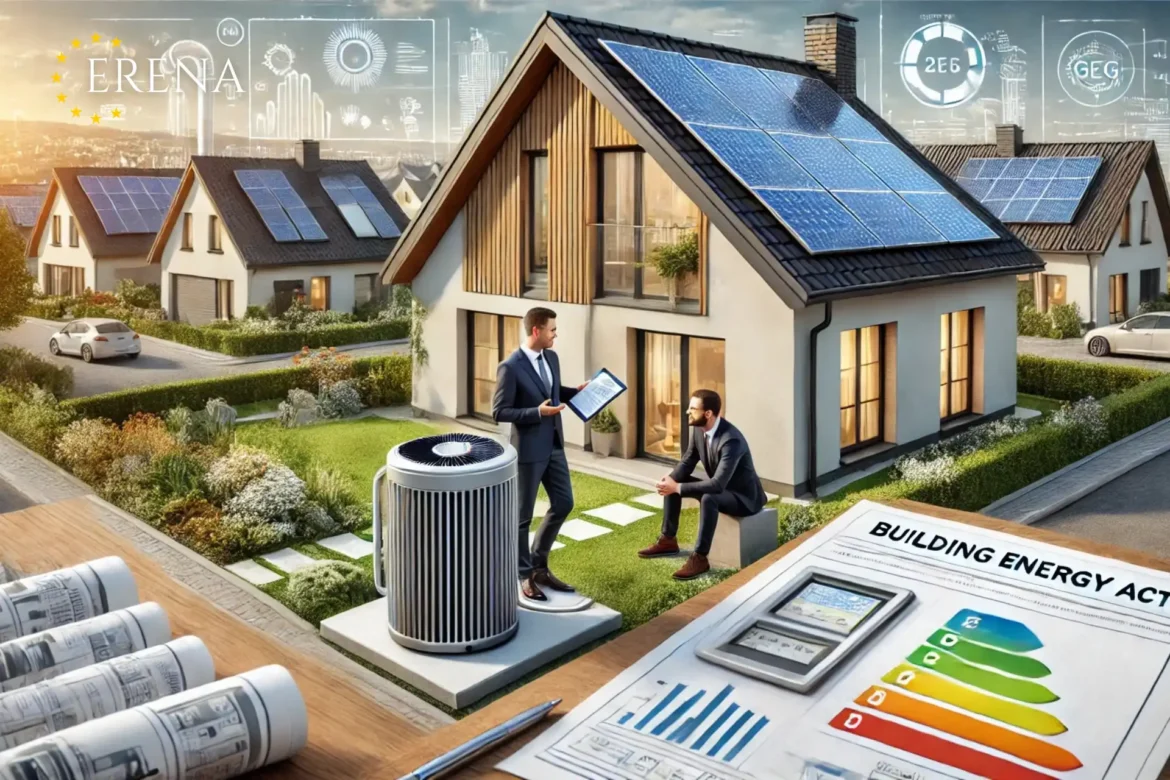Germany’s New Heating Law: Key Changes and Implications for Property Owners
As of January 1, 2024, Germany’s controversial heating law has come into effect, introducing significant changes to the rules governing heating systems. This legislation, an amendment to the Building Energy Act (GEG), aims to support the country’s goal of achieving climate neutrality by 2045. Here’s a breakdown of what property owners need to know.
Overview of the Building Energy Act
Under the updated law, any newly installed heating system must operate with at least 65% renewable energy. The primary objective is to reduce reliance on fossil fuels such as oil and gas, particularly in residential buildings. The law also mandates municipalities to draft comprehensive heat plans to expand district heating networks.
The revisions to the GEG were passed in September 2023 after extended debate and are being rolled out in phases, starting in 2024.
Requirements for New Constructions
Starting in 2024, new buildings within designated development areas must meet the 65% renewable energy requirement for heating. For buildings outside these areas, gas heating systems may still be installed if they can connect to a district heating network or be converted to use hydrogen or biogas in the future. Additionally, areas with plans for climate-neutral gas networks may also install gas systems under certain conditions.
Gradual Implementation for Existing Buildings
For existing buildings, the law introduces a phased approach:
- Municipal Heat Plans: Municipalities must prepare heat plans by mid-2028 (2026 for major cities) detailing their district heating expansion.
- Heating Options Until Heat Plans Are Finalized: Permissible heating systems include heat pumps, solar thermal systems, and direct electric heating for well-insulated buildings. Oil boilers, when paired with heat pumps, and wood or pellet stoves are also allowed if they meet the renewable energy target.
- Gas Heating Systems: These can be installed if they are convertible to hydrogen or biogas or until a heat plan is finalized. Starting in 2024, property owners installing gas systems must consult with an energy advisor. Hybrid systems are another viable option.
Transition Periods for Older Systems:
- By 2029, at least 15% of heating must come from biogas or hydrogen.
- By 2035, this increases to 30%.
- By 2040, 60% must use renewable energy sources.
Oil and gas boilers over 30 years old must be replaced, as per regulations introduced in 2020.
Transition Periods for Retrofitting
In cases where existing oil or gas boilers fail, repairs are permitted, and the system may continue using its current fuel. However, if replacement is necessary, homeowners have up to five years to transition to renewable energy—though this timeline will generally start from 2028 due to the heat planning requirements. Owners of multi-family homes have up to ten years to comply. Exceptions apply for social welfare recipients or if retrofitting is technically or economically unfeasible.
Insulation Rules from 2025
From January 1, 2025, any uninsulated or poorly insulated heating and hot water pipes must be retrofitted, particularly in unheated spaces such as basements or attics. Property owners have until December 31, 2025, to complete these measures. If a property changes hands, the new owner must complete the retrofitting within two years. Exceptions include cases where insulation is uneconomical or physically impossible. Long-term owner-occupiers of single or two-family homes are exempt.
Financial Support for Heating Upgrades
Subsidies for heating system upgrades are available through the KfW as part of the Federal Support for Efficient Buildings (BEG) program. While funding is contingent on budget availability, property owners can apply for financial assistance to install heat pumps, solar thermal systems, and biomass heating.
Subsidy Details
Eligible homeowners can receive up to 30% in basic subsidies, with additional bonuses available:
- Efficiency Bonus: 5% for heat pumps.
- Biomass Bonus: €2,500 for biomass heating systems.
- Climate Speed Bonus: 20% for systems installed before 2029, which decreases every two years.
- Income Bonus: 30% for owner-occupiers with taxable household incomes below €40,000.
Subsidies can cover up to 70% of costs, with maximum eligible expenses capped at €30,000 for single-family homes and €21,000 for the first unit in multi-family buildings. Applications require a contract with a qualified professional and must be submitted within specific timeframes for retroactive eligibility.
Impact on Landlords and Tenants
Landlords are incentivized to transition to renewable heating. Owners of buildings with more than six units must optimize heating systems by September 2024, including performing hydraulic balancing. State subsidies are available to support these measures.
Tenants may benefit indirectly, as landlords can only pass on modernization costs after deducting subsidies. Rent increases due to modernization are capped at 10% of costs and must not exceed €0.50 per square meter.
Conclusion
The new heating law represents a major step towards Germany’s climate neutrality goals. While it imposes new responsibilities on property owners, the phased approach, coupled with substantial subsidies, aims to ease the transition. Understanding these regulations will help homeowners and landlords navigate the changes and make informed decisions about their heating systems.

